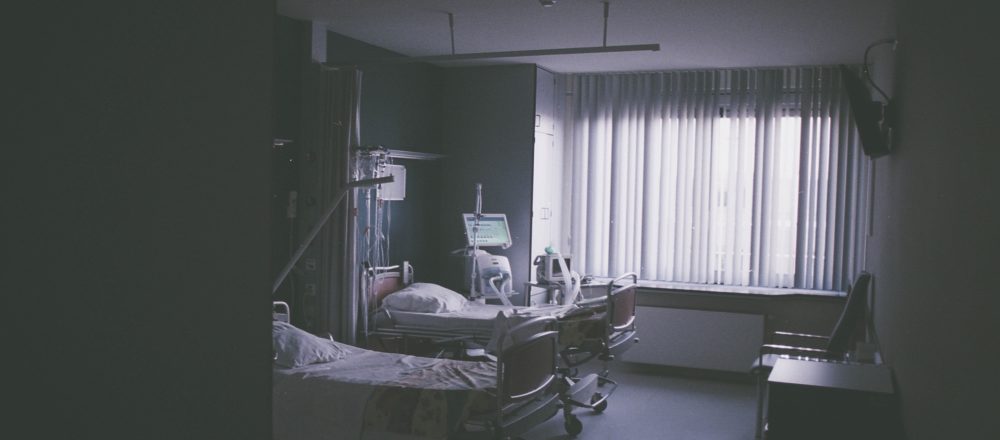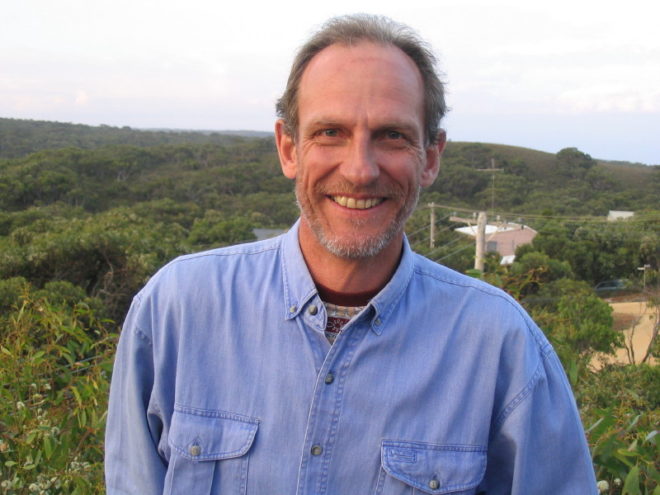Victoria may become the first state in Australia to legalise voluntary assisted dying (VAD), as the government prepares to consider legislation that would allow a person with a terminal illness to end their lives. Under the proposed scheme, the individual would have to make a request to access VAD three times, including a formal written request, which would need to be approved by their ordinary treating physician and two independent doctors.
Right Now spoke to Dr Nick Carr, who is a GP in St Kilda and member of Dying with Dignity Victoria, about his views on VAD. In 2005, Dr Carr prescribed one of his patients, Beverley Broadbent, the maximum dose of a drug because she asked him for help to die. Following Ms Broadbent’s death in 2013, Dr Carr faced possible criminal investigation as a result of his involvement in her death. Ultimately, Dr Carr was not prosecuted and received only a caution from the Medical Board of Australia.
Right Now: Do you believe that doctors are helping patients to die now anyway, even without a legislative scheme?
Dr Carr: We have known for a very long time that doctors are, of course, helping people to die. It has been overt in some cases (such as, for example, Dr Philip Nitschke), but it has been going on with unnamed doctors essentially forever. We need a legislative framework to protect patients and doctors, as it’s currently happening haphazardly. It’s not uniformly available to people and it puts doctors in a very difficult position, as they could face criminal charges or be suspended from medical practice. My own decision to help Beverley landed me in two years of legal hot water.
I believe that our job [as doctors] is to help people through their lives and, ultimately and inevitably, through their deaths.
Is voluntary assisted dying incompatible with the medical concept of “do no harm”?
The concept of “do no harm” is an interesting one. It doesn’t actually exist in the Hippocratic Oath. While ‘primum non nocere’ is indeed the rubric under which most doctors practice, I believe that our job is to help people through their lives and, ultimately and inevitably, through their deaths. One of the harms that we can commit as doctors is making peoples’ deaths unnecessarily less comfortable and more painful than it might be otherwise.
Would increased funding to palliative services negate the need for voluntary assisted dying?
That’s one of the greatest myths of this whole debate, that palliative services and VAD are mutually exclusive. It’s about having both together. We all support increased funding to palliative services. In fact, the strongest proponents of VAD still want excellence in palliative care.
However, the best palliative care cannot help a small group in the community whose suffering is incurable and intolerable. For this small group of people, morphine and palliative care cannot ease their suffering, and the option of VAD may be their preference. Palliative care is just as important as VAD and the two should be complimentary.
People opposed to VAD often point out that it is difficult to know when exactly someone will die, even in cases where they have been diagnosed with a terminal illness. This is used as an argument why VAD should not be legalised. Do you have any views on this?
We are very bad about knowing exactly how long someone has left to live. But to me, that’s irrelevant. It’s not about us the doctors and being able to foretell when exactly death will occur. It’s about individual patients. There are people who have terminal illnesses and we all know that they’re going to die fairly soon. We don’t know if it will be in three weeks or in four months’ time.
However, the point is not when they will die, the point is that they have an untreatable illness. They have a physical disease that’s going to kill them. We are talking about a very small group of people who want to die rather than lingering on in unnecessary pain; that is all this is.
Do the proposed laws appropriately balance the benefits and risks of assisted dying?
The laws as proposed are the most restricted and conservative assisted dying laws anywhere in the world. The proposed legislation has as many safeguards as possible, while still allowing VAD to happen for the largest number of people who need it.
Part of Beverley’s argument before she took her life was that if there had been a law in which I, as her treating doctor, could legally help her to die, she might not have taken her life when she did. For example, she asked me if she had a stroke and wound up in a nursing home, would I kill her? I had to tell her no, because that would be murder. Under this new legislation, if she developed a terminal illness, I could have helped her fulfill her wishes.
Do you think that the introduction of VAD would lead to people being coerced into ending their lives by family or wanting to end their lives because they don’t want to be a burden on their loved ones?
This is a common concern. But if it’s happening, it’s already happening at the moment in a way that’s uncontrolled and far harder to detect. I don’t think any legislation can guarantee that people won’t ever be coerced. Nevertheless, the way the proposed VAD legislation is framed here in Victoria has a significant number of safeguards.
There is huge protection because the person seeking VAD has to make the request to die, put that request in writing, and have their request reviewed by their usual physician and then two additional independent doctors. It’s really hard to see how someone who was under coercion would still get through that process without raising any red flags. At the moment without this legislation, I believe it’s happening anyway because these people have no protection.
Do you believe that the introduction of assisted dying laws is a slippery slope to much broader laws where, for example, children could access VAD?
The slippery slope argument has no evidentiary basis. It’s often suggested that if you start off with legislation where a granny who has terminal breast cancer is assisted to die, it’s a slippery slope to people with mental illnesses being killed, babies being killed and that sort of thing. While I understand that people are concerned about the slippery slope, we have to listen to the evidence.
Who are we to tell someone who has a ghastly terminal illness … that they can’t have a party and check out at their own time and choosing?
There has been research done into every jurisdiction that has introduced VAD – Oregon, the Netherlands to name a few – and there is absolutely no basis to suggest that VAD leads to a slippery slope of unchecked killing. We have to be guided by the evidence; we cannot just rely on some emotive argument that has no evidentiary basis. There is no suggestion that it has actually occurred, it’s just not true.
Ultimately, this type of legislation will only affect a very small group of people. But a large section of the community will be comforted by it. This is not about the medical profession. It’s not about doctors or nurses. It’s about individuals and their autonomy. Who are we to tell someone who has a ghastly terminal illness and doesn’t want to face an appalling decline that they can’t have a party and check out at their own time and choosing? Who are we to tell them that they must die some awful death? To me, VAD is entirely about autonomy.




